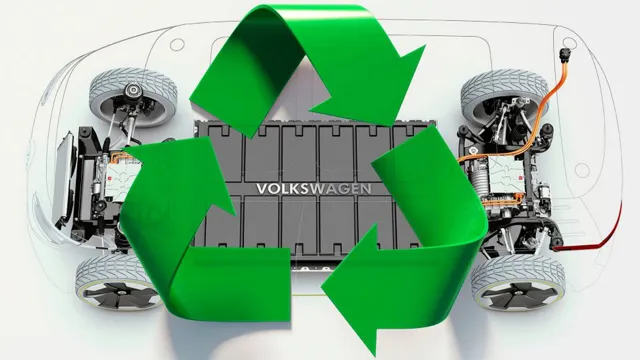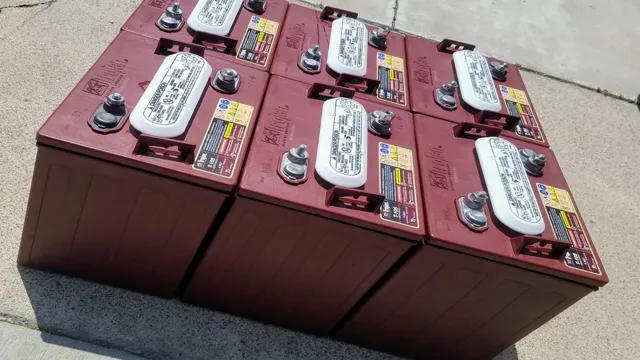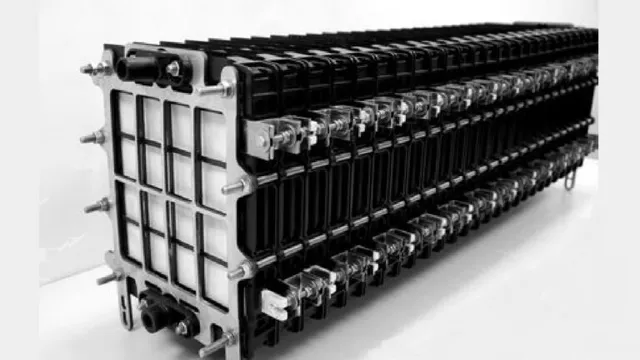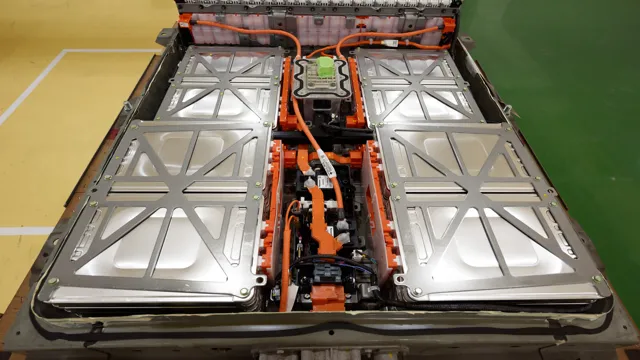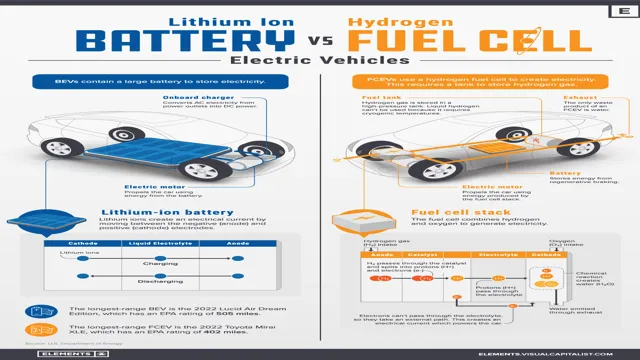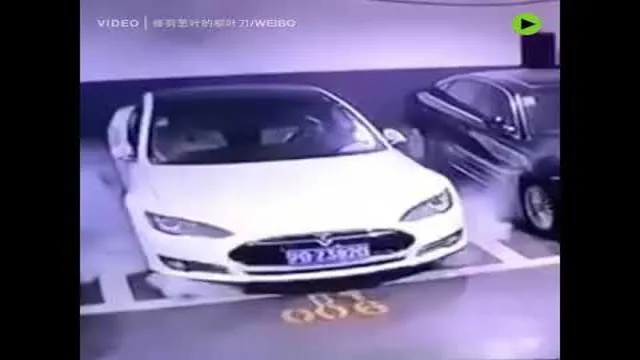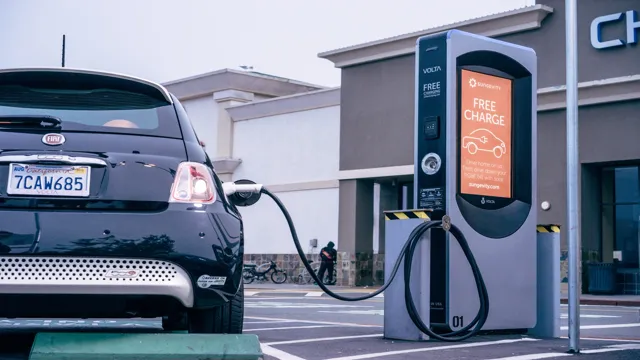Reviving Electric Cars: The Importance of Battery Recycling for a Sustainable Future
Electric cars have become popular among environmentally conscious individuals, and for good reason. Not only do they emit fewer pollutants than traditional gas-powered cars, but they also provide a smooth and quiet driving experience. However, they rely on large batteries to power them, which poses a problem when it’s time to dispose of them.
This is where battery recycling comes in. Recycling is an essential component of a sustainable future, and when it comes to electric cars, it’s even more important. The batteries in these vehicles contain toxic elements like lead and lithium, which can be harmful to the environment if not disposed of properly.
Recycling them not only prevents these elements from polluting our soil and water, but it also reduces the demand for new materials, which can help lower costs and reduce the carbon footprint of manufacturing. So why isn’t battery recycling more common? One reason is that it can be difficult and expensive to recycle these complex batteries. However, as the demand for electric cars grows, so does the need for sustainable solutions.
Governments, car manufacturers, and recycling companies are all working together to find ways to make the process more efficient and cost-effective. Plus, recycling batteries also has the potential to create new industries and job opportunities. In fact, the global battery recycling market is expected to grow significantly in the coming years.
By taking a few extra steps to ensure that our electric car batteries are recycled properly, we can create a cleaner and more sustainable future for ourselves and generations to come.
The Environmental Impact of Discarded Batteries
When it comes to the environmental impact of discarded batteries, the importance of battery recycling cannot be overstated. With an increasing number of electric vehicles on the road, the need for proper battery disposal has become more pressing than ever. When batteries are not recycled, they end up in landfills, where they can leach hazardous chemicals into the surrounding environment.
This can lead to soil and groundwater contamination, as well as harm to local wildlife. Not only that, but discarded batteries also represent a significant waste of valuable resources. By properly recycling batteries, we can recover valuable materials such as lithium, nickel, and cobalt, which can then be used to manufacture new batteries.
Battery recycling not only reduces environmental harm but also helps to conserve natural resources, making it a vital step in protecting our planet for future generations.
Statistics on Waste and Pollution
Discarded batteries are one of the major causes of environmental pollution. As per statistics, Americans toss away more than three billion batteries a year, polluting the environment with toxic chemicals. Batteries contain toxic chemicals such as cadmium, mercury, and lead, which can leak out and contaminate the soil and water.
The chemicals released from these batteries can cause serious health issues, especially for children and animals. The impact of discarded batteries can be devastating, leading to soil and water pollution, and the release of greenhouse gases into the atmosphere. It’s important to dispose of batteries properly by recycling them at designated recycling centers to prevent environmental pollution.
By properly managing our discarded batteries, we can mitigate the impact of our waste on the environment.
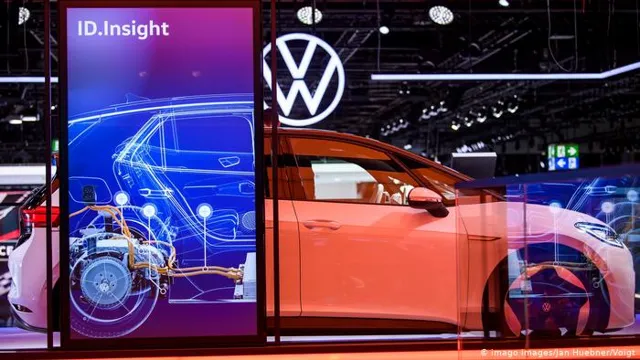
How Battery Recycling Reduces Pollution
Battery recycling plays an important role in reducing pollution. Discarded batteries can have a significant environmental impact as they contain hazardous chemicals such as lead, cadmium, and other heavy metals that can contaminate soil and water sources. The improper disposal of batteries can lead to a serious threat to wildlife and human health.
Recycling helps alleviate these concerns by extracting and safely disposing of these harmful substances. It also reduces the need for new batteries to be manufactured, thereby reducing the waste produced during the production process. Recycling batteries also conserves natural resources and energy since many of the materials used in their production are non-renewable.
In short, battery recycling not only reduces pollution but also helps conserve our planet’s resources while protecting the environment and our health.
The Economic Benefits of Battery Recycling
Battery recycling is the process of collecting and breaking down used batteries to extract valuable metals and materials for use in new products. The economic benefits of battery recycling are significant, particularly in the context of electric cars. The rise in electric car use means that there will be a growing demand for batteries, which in turn creates an opportunity for recycling companies.
By recycling batteries, companies can recover valuable metals such as cobalt, lithium, and nickel, which can be sold back to battery manufacturers. This means that less mining is required, and fewer resources are used to create new batteries. Additionally, recycling batteries can create jobs in the recycling industry and reduce waste.
Overall, battery recycling is a critical component of a more sustainable future and can bring many economic benefits to communities and businesses alike.
Cost Savings for Automakers and Consumers
One of the many benefits of battery recycling is the cost savings it provides for automakers and consumers. With the increasing demand for electric vehicles, batteries that power them must be disposed of properly or recycled to reduce negative impacts on the environment. Fortunately, recycling batteries also has economic benefits.
For automakers, recycling the batteries of their electric vehicles can save them a significant amount of money on raw materials. This is because the materials used in electric vehicle batteries such as cobalt, nickel, and lithium are costly to extract and refine. By recycling these materials, automakers can reduce their reliance on new resources and bring down the cost of manufacturing new batteries.
For consumers, battery recycling can translate into lower prices for electric vehicles. Recycled batteries can be used to produce new ones, which will be cheaper as compared to manufacturing new batteries from scratch. Additionally, recycling batteries can also reduce the disposal fees that consumers have to pay, ultimately saving them money.
All in all, battery recycling is an essential process that not only benefits the environment but also provides significant economic benefits to both the automakers and consumers.
Creating Jobs in the Recycling Industry
Battery recycling isn’t just good for the environment – it’s also great for the economy. Creating jobs in the recycling industry is one of the key economic benefits of battery recycling. By recycling batteries, we can reduce the amount of waste that ends up in landfills and help conserve natural resources.
In turn, this creates a demand for more recycling facilities, which leads to employment opportunities. Not only does this benefit those directly employed in the recycling industry, but it also has a ripple effect on the wider economy. As more people are employed, they have extra money to spend on goods and services, which in turn creates more jobs in other industries.
So, when you choose to recycle your batteries, not only are you doing your part for the environment, but you’re also contributing to the growth of the economy.
Meeting Government Regulations and Targets
As more governments regulate the disposal of batteries, and set targets for their recycling, battery recycling is quickly becoming an essential element in the circular economy. Apart from its environmental significance, battery recycling can have significant economic benefits for businesses. Reusing valuable materials in spent batteries like cobalt, nickel, and lithium can reduce dependence on expensive and rare natural resources.
It also creates new opportunities for job creation and investment in local economies. Additionally, recycling batteries produce less emissions than exploring new mines, providing a cost-effective solution for reducing a company’s carbon footprint. With the increasing demand for batteries from electric vehicles, smartphones, and other electronic devices, companies must take advantage of battery recycling to fulfill the growing environmental obligations and maximize economic benefits.
The Future of Battery Recycling
As electric cars become more mainstream, the need for battery recycling has become a pressing issue. With the rise of the EV market, battery production has skyrocketed, which has also raised concerns about their disposal. However, battery recycling presents a solution to this issue.
By recycling batteries, we can reduce the amount of waste we produce and recover valuable materials like lithium, cobalt, and nickel. These materials can then be repurposed and used in the production of new batteries, creating a circular economy. In fact, some companies are already investing in battery recycling technology, such as Tesla’s Gigafactory, which aims to produce batteries and recycle them at the same facility.
With innovation and investment in this field, the future of battery recycling looks to be a promising one for both the environment and the EV market.
Developments in Technology and Innovation
As technology evolves, so does the need to recycle waste products, especially batteries used in various electronic devices. The future of battery recycling looks promising, with companies investing in state-of-the-art equipment to recycle batteries in a more efficient and sustainable manner. Several promising techniques are being developed, such as hydrometallurgy and pyrometallurgy, which aim to recover valuable metals like cobalt, nickel, and lithium from batteries.
Battery recycling not only reduces e-waste but also conserves natural resources and reduces greenhouse gas emissions. It is also a profitable venture, as batteries contain several precious materials that can be reused in manufacturing new batteries. The future of battery recycling looks bright, and as consumers, we can do our part by making sure to recycle our used batteries through certified e-waste recycling centers.
Integration with Renewable Energy Systems
As we look towards integrating renewable energy systems into our daily lives, it’s important to consider the future of battery recycling. Batteries are an integral part of any renewable energy system, but what happens to them once they reach the end of their lifespan? The good news is that there is a growing movement towards sustainable battery recycling, which not only reduces waste but also helps to recover valuable resources. By reusing materials from old batteries, we can reduce our reliance on non-renewable resources and help to build a more sustainable future.
However, this also means that we need to start thinking about recycling processes that are efficient, cost-effective, and safe for both humans and the environment. The future of battery recycling is bright, but it will require a collective effort from manufacturers, consumers, and policymakers to ensure that we are creating a cleaner and more responsible energy future.
Conclusion: Why We Need to Support Battery Recycling
In conclusion, recycling batteries from electric cars is not only environmentally responsible but also economically savvy. It’s like hitting two birds with one EV. By giving new life to these depleted battery packs, we preserve valuable resources, decrease landfill waste, and reduce greenhouse gas emissions.
Not to mention, we also extend the usable life of electric car technology, making it a sustainable investment for the future. So, let’s charge forward and take recycling to the next level – the electric one!”
FAQs
How are batteries recycled in electric cars?
The process of battery recycling in electric cars involves first removing the battery from the car and disassembling it into its component parts. The various parts are then processed and separated into their individual materials, such as metals like lithium, cobalt, and nickel, which can be reused in new batteries.
Is battery recycling in electric cars environmentally friendly?
Yes, battery recycling in electric cars is environmentally friendly because it reduces the need for new raw materials to be mined, which can often be a very environmentally destructive process. Additionally, recycling batteries reduces the amount of waste that ends up in landfills, where it can pollute groundwater and soil.
How long do electric car batteries last before they need to be recycled?
Electric car batteries can last for several years, typically between 8 and 10 years before they start to decline significantly in performance. Once the battery has reached the end of its useful life, it can be recycled to recover valuable materials and reduce waste.
Are there any downsides to recycling electric car batteries?
One potential downside to recycling electric car batteries is that the process can be expensive, as it requires specialized equipment and processes to safely handle and recycle the batteries. Additionally, if the demand for recycled materials from electric car batteries does not keep up with the growth in the use of electric cars, there could be a supply imbalance that could lead to higher prices for recycled materials.
